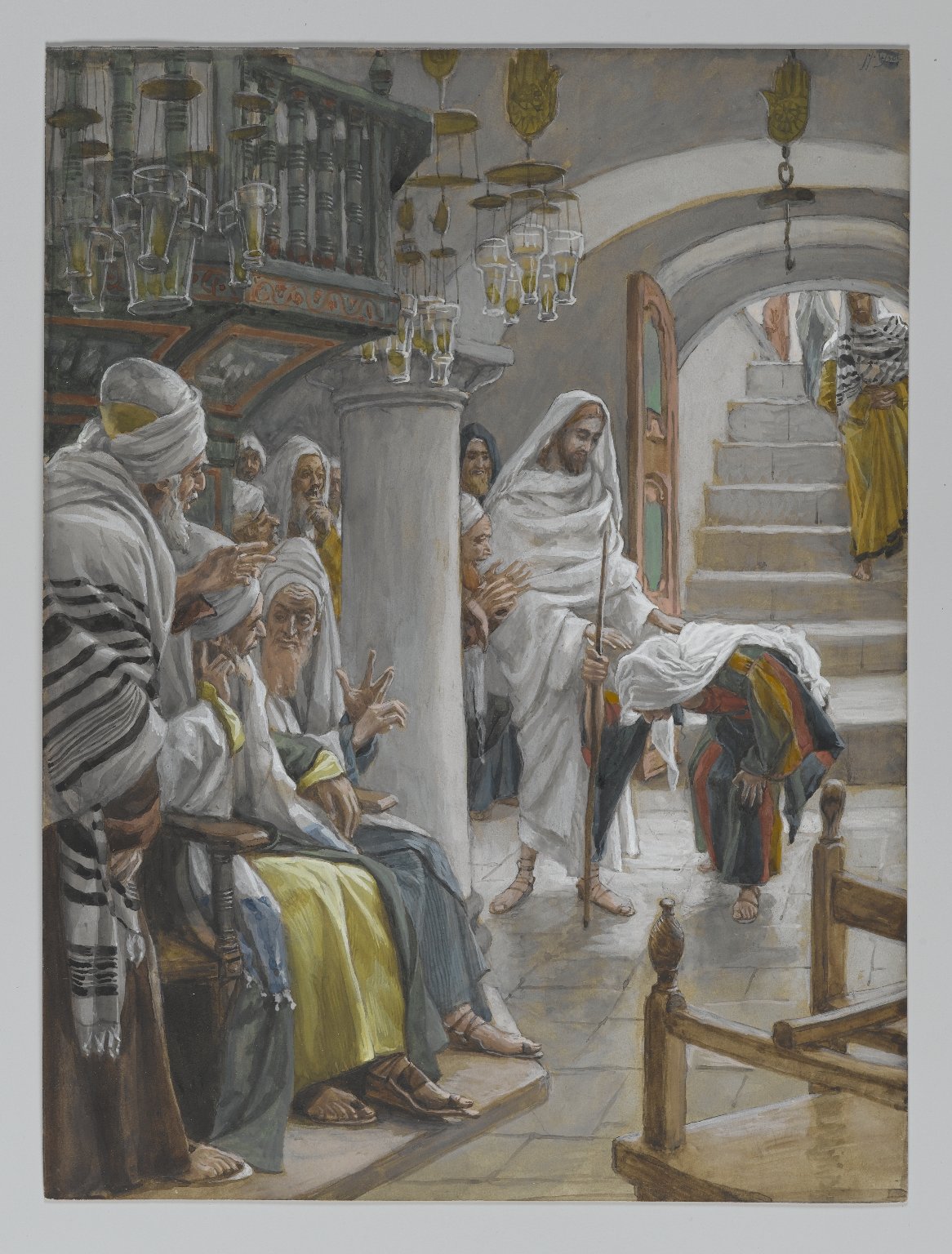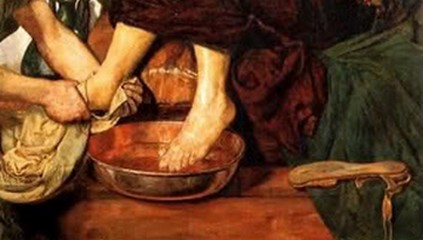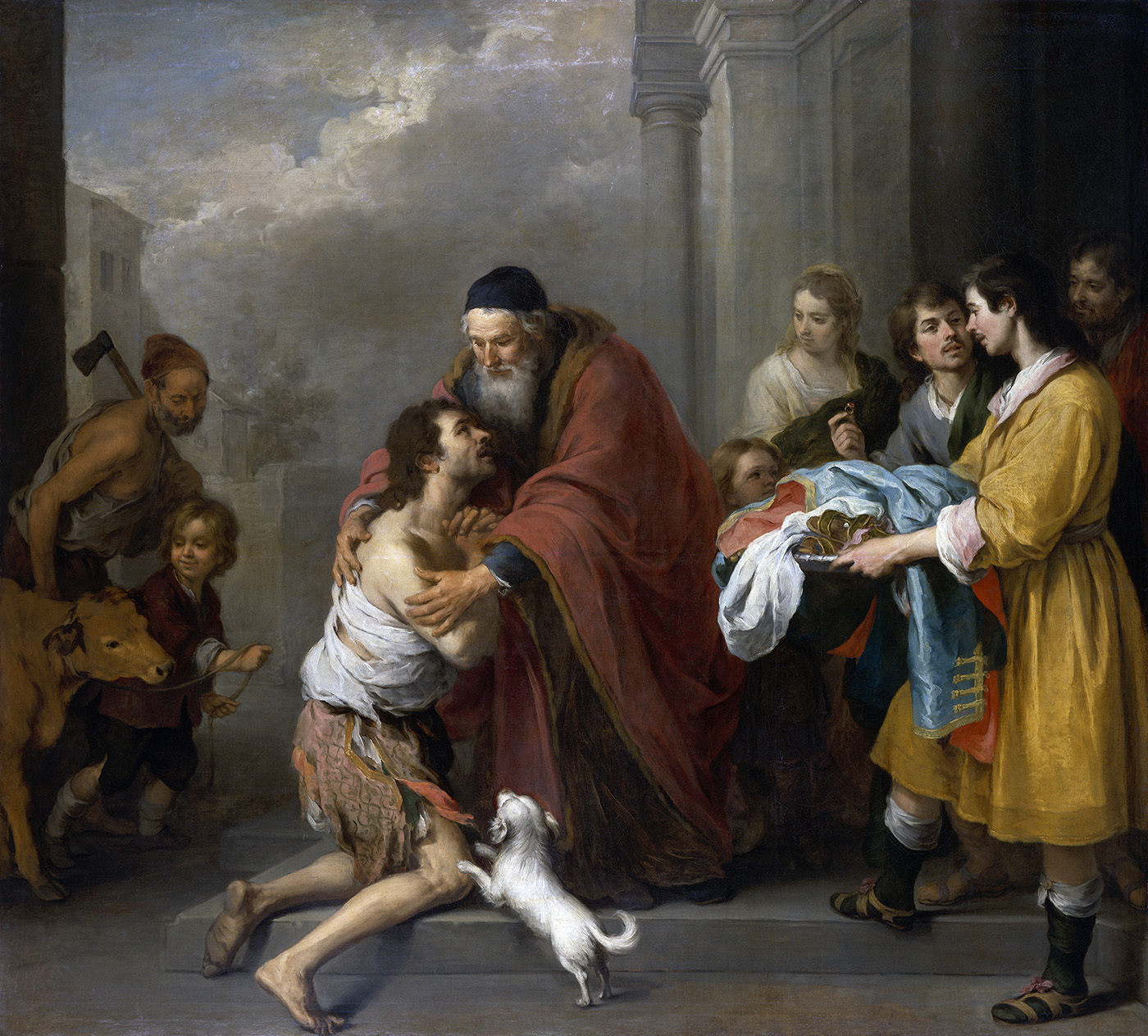Your Pregnancy Help Organization and COVID-19
If you are a Heartbeat Affiliate, please click log in at the top of the page to view more materials! Additional materials will appear below for those current affiliates who are already logged in. Click here for more information about affiliating with Heartbeat International.
You can also get a recording of our webinar series Coronavirus and Your Pregnancy Help Organization for free by clicking here. Resources related to those webinars are also available on the Complimentary Materials page here.
The information in these articles is accurate as of the publication date of each one. We are working to keep our articles up-to-date as changes surrounding COVID-19 occur, and we encourage everyone to check the CDC, WHO and their local authorities as the situation is ever-evolving.
Displaying items by tag: tlc
Praying That They May Know
 “I pray that the eyes of your heart may be enlightened, so that you may know what is the hope of His calling . . . .” Eph. 1:18A
“I pray that the eyes of your heart may be enlightened, so that you may know what is the hope of His calling . . . .” Eph. 1:18A
Servants of Excellence
We pray for friends, family members, and many times for those who come in the door of our pregnancy help ministries. When we do, we might pray for specific situations, such as health, relationships, employment, finances and more.
As we pray for those in our circle of influence, let’s ask this: “How would the world be different if God answered every one of my prayers this week?”
One pastor, made this point by asking his congregation, “If God answered all your prayers, what would happen? Would you merely see your food blessed, a few people get over their colds and have traveling mercies to grandmother’s house? Would that be all?”
Tough words!
But look at what Paul prays for his Ephesian friends. Let’s peek at Paul in his prayer closet:
“ . . . That the God of our Lord Jesus Christ, the Father of glory, may give to you a spirit of wisdom and of revelation in the knowledge of Him. I pray that the eyes of your heart may be enlightened, so that you may know the hope of His calling, what are the riches of the glory of His inheritance in the saints, and what is the surpassing greatness of His power toward us who believe.” (Eph. 1:17-19A)
Now that’s praying. Paul goes beyond the requests we so often think of and straight to the heart of the matter. Because he knows, if his friends in Ephesus capture a clear understanding of God’s love, everything else is going to fall into place.
As he continues, Paul’s greatest desire is that those receiving his letter have eyes to see the hope of what it means to be in relationship with Jesus Christ.
Which is something for us to remember. When a friend, family member or client asks for prayer, what is our primary focus? Do we focus on the situation in front of us? Or on the greater need?
Me? I tend to see the surface need and focus my attention on whatever I’m asked to pray about. But what if I also asked for something bigger, that my friend understand, “the hope of His calling” and to effectively grasp God’s love for us?
Paul focused on the greatest needs of his friends. As I pray for others, it’s a good idea to do the same.
by Kirk Walden, Heartbeat International Advancement Specialist
Be a Rule-Breaker: Love
Servants of Excellence
And the synagogue official, indignant because Jesus had healed on the Sabbath, began saying to the multitude in response, “There are six days in which work should be done; therefore come during them and get healed, and not on the Sabbath day.” Luke 13:14
The synagogue official, staunch defender of tradition, must have been a fun guy to hang out with. Because after seeing the miraculous healing of a woman who spent 18 years with a sickness which kept her from ever standing upright, his first thought is to defend a man-made rule which God never intended when He created the Sabbath Day.
The religious leaders of Jesus’ day voiced plenty of complaints about their Messiah. They didn’t like his friends, weren’t happy with His drinking habits, and vehemently opposed how Jesus spent His Saturdays.
In their minds, Jesus was nothing but a rule-breaker; a tradition-stomping, disrespectful insurrectionist who wanted nothing more than to thumb his nose at anyone with authority.
But we know Jesus was quite the opposite. He was—and is—the authority, a man who loves His Father so much that He defended the Father’s love . . . above the rules men created for their own benefit.
Love doesn’t care what day it is, because every day is the perfect time to love the hurting. Love doesn’t fret over the status of someone else, because everyone is worthy to be loved. Love isn’t bound by tradition because love has no shackles, no limits.
What about those of us in the pregnancy help community? Thankfully, we don’t have man-made religious rules which keep us from loving.
On that Saturday, Jesus saw a woman who was, for 18 years, beyond healing. For 18 years, her illness kept her from standing upright. Nothing helped. Likely in pain every single day, no one’s prayers made a difference. Others probably took care of her.
But somehow, on that Saturday she made it to the synagogue to see Jesus. And on that day, everything changed. It was her right time, regardless of the rules.
If we are reflections of Jesus, part of our mission is to love enough to see those who come in our door as at “just the right time” for healing of emotional, spiritual and possibly even physical wounds. Because for love, there’s no time like the present. And that’s a rule we can always live by.
by Kirk Walden, Advancement Specialist
Leadership? Or Servantship?
Servants of Excellence
“But not so with you, but let him who is the greatest among you become as the youngest, and the leader as the servant.” Luke 22:26
“Leadership” is today’s burgeoning industry. Bookstores are filled with books on leadership, online classes populate the web, day-long leadership seminars abound and leadership coaches reach out to us, ready to provide assistance as we seek to be . . . leaders.
This isn’t wrong, in any sense. In fact, many Christians are leaders in this field because they first learned the importance of leadership from Jesus. They are successful because they teach what Jesus taught regarding leadership—and it works.
And, just like Jesus, they teach that anyone can be a leader, by following one simple rule: Leaders serve.
There it is. No challenging formulas, no fancy steps.
Yet, servanthood is the opposite of what so many believe leadership is about. Jesus dealt with this during The Last Supper, as the disciples—about the time Jesus was washing their feet—argued over who was the leader of the pack.
Jesus stopped the conversation in its tracks. He pointed out that in the world, those with titles and money were “leaders,” but in his kingdom things would be different.
“But not so with you, but let him who is the greatest among you become as the youngest, and the leader becomes the servant,” Jesus told them.
Then he asked, “For who is greater, the one who reclines at the table, or the one who serves?” Before anyone could answer (probably a good thing), Jesus continued. “Is it not the one who reclines at the table? But I am among you as the one who serves.”
It would be easy to end the entire leadership conversation with, “If you want to be a leader, go out there and serve.” And this is true. In Mark, (9:35), Jesus said as much: “If anyone wants to be first, he shall be last of all, and servant of all.”
But there might be something even more basic in what Jesus said at The Last Supper.
Perhaps, just perhaps, Jesus was asking his closest followers not to focus on leadership, but to instead live a life of service—regardless of whether one becomes a leader.
This world needs good servant-leaders, no doubt. But perhaps just as much, we need those who serve, those who wake up each day determined to do at least one act of service, for no other reason than this is what Jesus taught.
Today then, let’s find just one way to serve. Let’s build our lives so this is our habit, our way of life. Will we become leaders as a result? Maybe. Maybe not.
But one thing we’ll know for sure, we’ll become incredible servants. And maybe this is what Jesus wanted all along.
by Kirk Walden, Advancement Specialist
Modern Day Foot-Washing
Servants of Excellence
“Then He poured water into the basin, and began to wash the disciples’ feet, and to wipe them with the towel with which He was girded.” John 13:5
Jesus’ washing of the disciples’ feet during His final Passover meal is only mentioned in one of the four gospels (John), but for centuries Christians have focused on this moment’s significance, impact and lessons for us today.
Clearly, this act—on Jesus’ final night before His crucifixion—is one of servanthood. We would not think the king of the coming kingdom would serve anyone. He should be served! But Jesus chose instead to paint a poignant picture of who we need to be as His followers. And He did so by washing the grimy, calloused feet of those who followed Him.
Which creates a question. What is a modern-day equivalent of foot-washing?
While many still practice actual foot-washing as a reminder and example, because we aren’t as likely to wear sandals (well, we do wear Chacos) and walk on dirt roads all day, what is 21st century practice which follows Jesus’ powerful act of service?
May I offer one, which I often overlook? Listening.
Here is why.
In today’s world, society is wedded to IPhones, Droids, laptops. We’re texting, Facebooking, Twittering, Instagramming and Linking In. Any conversation is easily derailed by the distraction of a call, a “Let me just text him/her back really quickly” or a need to rush off to the next thing in our busy lives.
Today, we don’t worry about dirty feet too much. Still, our lives get messy. And sometimes, the only way to wash off the dirt in our lives is to vent to a friend who listens, as we try to make sense of it all.
Our modern dirt is often found in a metaphorical desert, where our spiritual life converges with the challenge of trying to live out our faith in a mixed-up world. When the wind and rain of circumstances hits us from all directions as we try to walk out this faith, our spiritual feet get dirty.
Our dirt may not be a sin with which we are struggling, and it may not be a situation which demands fixing. In fact, because social media and first-world standards almost force us to hide our grime, it’s difficult for anyone to see the muck and mire which clutters our lives.
And, we try to ignore our messes as we rush to keep up with the frenetic pace at which we live.
Still, we need someone around who will listen. Because for all of us, that moment comes when we look down at our feet—trying to walk forward in this path of faith—and see they are covered with the cares of life. They need washing.
Jesus, on his final night with his disciples, stopped. He took the time needed to thoroughly wash each man’s feet. He listened as Peter asked, mistakenly, for more. And we can be sure He listened to others as He carefully cleaned those feet which had taken the journey with Him over three years.
Sometimes, the best example of servanthood we can offer to another is the gift of listening. No judgment, no quick fixes, no pat answers. Just. Listening.
If we offer this gift, perhaps our friend will experience a refreshing rain as the overwhelming circumstances of life wash away. And the feet our friend needs to walk this journey are once again clean, ready for another next step toward the One who loves us.
When Healing is Complete
Servants of Excellence
And standing over her, He rebuked the fever, and it left her; and she immediately arose and waited on them. Luke 4:39
Reading through Luke’s narrative of Jesus’ life, we quickly find Peter (and others) asking Jesus to heal his mother-in-law, suffering with a potentially fatal fever.
What captures me is not just that Jesus healed her with a quick rebuke of the fever but what happened next: “and she immediately arose and waited on them.”
Okay, no jokes about the hypothetical reason Jesus healed her (“They needed dinner!”). My guess is, upon being healed, Peter’s mother-in-law wanted to get back to living life. No reason to sit around, right?
If Peter and the disciples were Southerners, I can imagine the conversation:
Peter’s Mother-in-Law: “I feel great! While you’re here, let me get something for y’all to eat.”
Peter and the disciples: “No, no. Sit down, momma. We’re fine. Get some rest.”
Mom-in-Law: “Nonsense. Nobody walks out of my place starving! I’d never forgive myself. Don’t treat me like an old woman—now, eat up!”
Peter and the disciples: “Yes, ma’am.”
Obviously, I’ve taken some liberties with the conversation. But the point is important. Once healed, Peter’s mother wasted no time. She got up immediately and began serving those in her home.
While it didn’t happen in this instance, many times Jesus would forgive the sins of someone before healing them of a physical malady. After the forgiveness and the healing, there would be immediate change in the life of the person Jesus touched.
It’s the same with us.
Immediately. If we have something in our lives we regret, Jesus will heal us. Once He does, our healing is full and finished.
Yes, we may need to make amends (as Zacchaeus was willing to do for those he defrauded). But any apologies or restitution are the fruit of healing, which is already complete.
Is there something—anything—in our lives slowing us from living life to the full? Something from last week or long ago? If so, let’s take it to the One who forgives completely. From there, let’s take a lesson from Peter’s mother-in-law.
She understood that once we are touched by Jesus, healing is complete. We are free to go and live life to the full. She knew she could get back to serving those in her world. We can, too.
by Kirk Walden, Advancement Specialist
Sometimes, a Fire is a Good Thing
Servants of Excellence
So also the tongue is a small part of the body, and yet it boasts of great things. Behold, how great a forest is set aflame by such a small fire!” James 3:5
In James’ letter to the Christian Jews dispersed abroad, his references to the tongue (James 3:1-18) are quite a warning. He calls the tongue a fire, then goes on to say our tongues can be “the very world of iniquity,” --not exactly a walk into the world of positive thinking.
Sometimes we need warnings. They capture our attention (“Watch out!”), they caution us (“If you touch that, it will burn you.”) and they help us re-think our future decisions (“If you keep doing this, your health risks only increase”).
James probably realized his brothers and sisters needed a warning, but even in the warning he shows a way out. At the end of his missive on the tongue, he asks, “Who among you is wise and understanding? Let him show by his good behavior his deeds in the gentleness of wisdom.”
As I was reading these verses one morning, I sensed the Lord moving me to write a quick text of encouragement to a friend. He would be on a stage that evening, attempting to move people’s hearts to reconsider their views regarding Jesus—in a sense, he would be evangelizing in a debate setting.
Usually I let these promptings wait until I’m done reading, but this time, I snagged my phone to jot out a text immediately.
When pulling up my text feature however, I already had a text from a friend 2,407 miles away. This friend—a pastor I met at a speaking engagement more than a year earlier—was getting in touch to say I and my family were on his mind. He was praying for us.
Sure, it was “just a text.” But it was a tremendous encouragement. And it was coming at just after 6 AM his time. We shared a couple of texts as we built up each other, which gave me the words for a quick word of hope and help for the friend who was in the Carolinas for his speaking engagement.
Going back to James’ letter, I realized the tongue can certainly be a fire. It can burn down relationships, damage our ability to advance the faith, and wreck the hearts of people we may not even know.
But, as James says (James 3:4), just like ships “are still directed by a very small rudder, wherever the inclination of the pilot desires,” the tongue directs our lives. A friend in Oregon used his tongue (through something as innocuous as a text message) to direct not only his, but my life as well. And his text gave me an extra push to encourage another—who would be speaking to several hundred people that evening.
As I plopped my phone back down to get back to my buddy James, it hit me: Yes, the tongue is a fire. But not all fires are bad.
Some fires clear out bad stuff (scrub brush, etc.) so trees can flourish without fear of further fires. Other fires keep us warm and cozy.
Yes, a fire can be threatening. We don’t want our tongues starting those fires.
But our tongues can also burn away the dead brush in another’s life. And they can be a source of warmth for another when the world out there can be so cold.
Each day, we use our tongues to direct our lives—and those of others. In the process, we start fires. The question is, “Which kind?”
by Kirk Walden
The “Problem”—and the Joy—of the Good News
Servants of Excellence
And when they did not find them, they began dragging Jason and some brethren before the city authorities, shouting, “These men who have turned the world upside down have come here also;” Acts 17:6
Paul, Silas, Jason and others caused quite a stir in Thessalonica, where Paul spent three weeks with the Jewish community, convincing many of the good news of Jesus’ identity and mission.
Yet, whenever there is good news some will find a problem. So it was in Thessalonica, where the Jewish leaders became jealous as more and more were persuaded Paul was right by saying, “This Jesus whom I am proclaiming to you is the Christ.” (Acts 17:3)
Because of their jealousy, the religious leaders of the day formed a mob (Acts 17:5), then dragged Jason and some of Paul’s friends in front of the city authorities, falsely accusing that “. . . they all act contrary to the decrees of Caesar, saying that there is another king, Jesus.” (Acts 17:7)
Paul probably made it clear that Jesus was not on earthly king, so why the false accusation? What was the real problem?
The real problem was about power. The religious leaders enjoyed being served by those they ruled over. They had full authority to make proclamations regarding not only religion, but about how the world around them (in this case, the Jewish community) would function.
No one was allowed to question their leadership or their authority. In short, they had a great life—and all of the power they could ask for. Until Paul showed up.
Paul, Silas, Jason and others were offering something new. This good news challenged the one thing the leadership held dear: Their power base. For if Jesus is king, the religious leaders were subject to him and suddenly, everyone was on equal footing.
To the religious leaders, this “turned the world upside down,” – their world.
It’s no wonder they were angry and jealous, creating mobs and making false accusations. They would do anything to protect their personal kingdoms.
For us and those we serve however, the good news is truly Good News. When we see Jesus as King, there is joy in knowing our King is one of reconciliation, hope and promise. Our King’s decrees aren’t those of a dictator (“Do this or else!”) but one of love (“Love your neighbor as yourself”).
And just like Paul and his friends, when we embrace this good news and share it with others, some—like in Paul’s day—won’t be happy. But if we’re faithful, we might see the results Paul did, where many choose instead to join with us in proclaiming the greatest news ever told.
by Kirk Walden, Advancement Specialist
The Crown of Our Exultation
Servants of Excellence
“For who is our hope or joy or crown of exultation? Is it not even you, in the presence of our Lord Jesus at his coming?” 1 Thessalonians 2:19
Paul had an interesting take on what he looked forward to in the coming kingdom. His focus seemed to be less about him and more about those who mentored and strengthened. What was Paul’s hope? His Joy? His future crown? Those churches he planted and strengthened.
In the pregnancy help community, we may not be planting churches. But we are acting as the church, in many ways . . .
We plant seeds
Paul mentions in his first letter to the Corinthians, “I planted, Apollos watered, but God was causing the growth.” Sometimes we overlook the importance of planting. We immediately wish to see fruit, but we will never see fruit unless we plant, plant . . . and plant again.
In our ministries, we do this in various ways. Sometimes it is through a kind word at the receptionist’s desk, or a word of encouragement in a private room. It might be through a moment in the ultrasound room when we say only, “You can do this. I believe in you, and God believes in you, too.”
If we plant enough, there will be fruit. And this fruit can be a Crown of Our Exultation we may not see in the here and now.
We water, too
Just like Apollos in Paul’s letter to Corinth, we water—more than we realize. Remember that encouraging word? Sometimes it is a seed, sometimes it is water to the soul. When the abused or the hurting seek our help, the one need is water, which provides growth to a seed which is languishing in drought.
Each day then, we not only plant. We water as well. Enough water leads to consistent growth which we may see in our Earn While You Learn setting, a Bible study or when we spend time with our dads.
As we move toward the close of 2018, let’s keep planting and keep watering.
Paul had a hope and a joy. And, he looked forward to a crown of exultation. While we can’t properly define this crown, we do know everything in Paul’s life started with those he served.
We serve. We keep reaching out. And we believe somehow, what we do makes a difference.
If we stay committed, I believe there will be a moment we cannot quite fathom. At that moment, we will see everything God accomplished through us. When this happens, I’m guessing there will be the joy of surprise, and the realization that everything we hope for (and more) took place.
Perhaps it is just me, but when this happens for Paul, I can see him clenching his fists, then punching his arms in the air and saying, “Yesssss!” All the labor, all the sacrifice, all the prayers . . . coming to fruition.
If this can take place for Paul, why not us? As 2019 begins then, let’s grab some seeds. We’ve got a crown to win.
by Kirk Walden, Advancement Specialist
A Story of a Loving Father
Servants of Excellence
“And he said, ‘A man had two sons.’” Luke 15:11
The story we know as “The Prodigal Son” is only recorded by Luke, yet Jesus’ rendition of this parable is one of the most-loved of all.
We’ve heard this story so often, we might overlook some of it if we’re not careful. Even the beginning, because it is in the first phrase where we find who this story is all about: A Father. Jesus even says so.
The rest of the story is common knowledge, in and out of Christianity. A son tells his father he wants his inheritance now, then squanders everything before coming to his senses. He goes back and asks his father for forgiveness. The father not only grants the forgiveness but throws a party because his son has come home and is back in the fold.
There is a back story of course. The other son is not happy, because he’s hung around the home all this time and did what he was told (but probably with a poor attitude). He complains that his father is celebrating a loose-living son’s return. The second son wants punishment for the prodigal, but dad is simply thrilled to see reconciliation take place.
Back to the beginning. “A man had two sons.” In the day and time Jesus spoke these words, fathers ruled the roost. No son would speak to a father like the prodigal did. In truth, asking for his inheritance early, in this culture, was akin to saying, “Father, I wish you were dead.” Really, it was.
So here was a dad, being figuratively spat upon by his own son. The one he raised. The one he nurtured and taught. The one to whom he would one day give half of all he owned. Instead of experiencing the love of his son, this dad was rejected in the worst way.
For this father, his entire world was crashing down. But instead of anger or “laying down the law,” this father granted the prodigal’s wish.
The ending of course, is one of reconciliation. The son comes home and while his brother is less than thrilled with what transpires, the father—the subject of this story—could not be more excited.
Jesus told this story to remind us of his Father’s love for us. We are co-heirs of this reconciliation. We should be ecstatic that our God would love us so much that whatever we’ve done, wherever we’ve run off to, if we return to our Father he will throw a party in our honor.
It’s a great parable and we extrapolate many deep truths from this story. We share it with children in Sunday school. But do we believe it?
This is the question we face, because many (perhaps all?) of us have those moments where we seek forgiveness more than once for the same offense. We don’t believe we are totally forgiven. So, we ask again. And again.
Maybe we carry around our shame. We try to make up for our past decisions in different ways.
But once we’ve “come home” to the Father, perhaps the best and most important thing we can do is enjoy the party He throws in our honor. Whatever we are carrying around, let’s lay it down before the Father one last time.
Once this takes place, let’s accept the ring He gives us and get out our fork and knife. It’s time to enjoy the fattened calf and start the party. I think this is what God truly wants from us.
by Kirk Walden, Advancement Specialist
When It Seems You’re on the Outside, Stay Committed
Servants of Excellence
“Now there was a certain man at Caesarea named Cornelius, a centurion of what was called the Italian cohort, a devout man, and one who feared God with all his household, and gave many alms to the Jewish people, and prayed to God continually.” Acts 10:1-2
There are times in our when we see God working elsewhere, but for whatever reason He doesn’t seem active in our own life. Others appear to be in the middle of God’s work and us? We’re watching, wondering why we don’t seem to be included.
Whenever we find ourselves thinking, “God doesn’t notice me,” let’s remember Cornelius in the Book of Acts.
We know Cornelius’ story, but have we looked closely? Cornelius was a Gentile (non-Jew), an Italian centurion—a soldier. Even though he had no connections to the Jewish nation, he gave financially to the Jewish people, and in this narrative, Luke also points out he “feared God with all his household . . . and prayed to God continually.”
Yet, even as God worked among the Jews and we see God sending his messiah, Cornelius was not part of anything. He kept praying. Kept teaching his family about God. Kept giving. But day after day, nothing. We don’t see the Jewish people welcoming him as one of their own. Cornelius was on the outside looking in.
Though he wasn’t seeing tangible results from his prayers, Cornelius—out there on his own regarding faith—stayed committed. Still, we can forgive Cornelius if he ever thought, What about me, God?
Then one day Cornelius received a visit from an angel, who told him his prayers had not been wasted at all. “Your prayers and alms have ascended as a memorial before God,” the angel told him. The angel then asked our friend Cornelius to send men out to find Simon Peter, and, smart man that he was, Cornelius obeyed.
We know the rest of the story. Peter went to Cornelius’ home, where a mighty move of God brought the Good News to the Gentiles for the first time. Cornelius—the man who stayed committed even when he could see no real results—was likely the first Gentile in the history of planet Earth to be able to call himself “Christian.”
What about us? Whenever we feel as if we’re on the outside looking in, let’s stay committed. Let’s keep praying. Let’s keep looking for God to make His move. Though we may not see the results today, the fruit of our devotion may be closer than we think.
by Kirk Walden, Advancement Specialist

